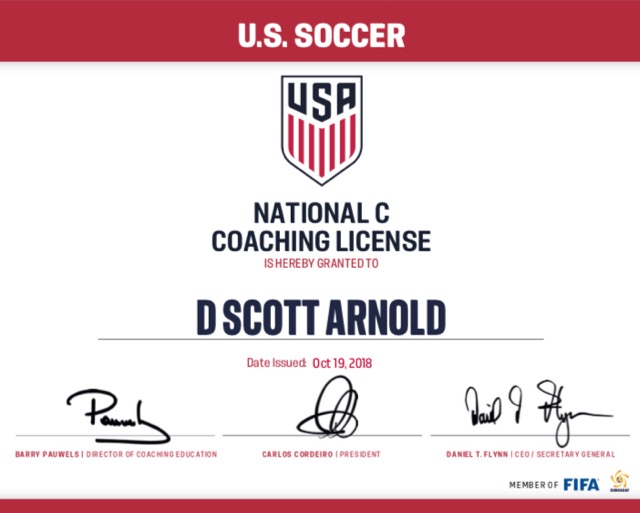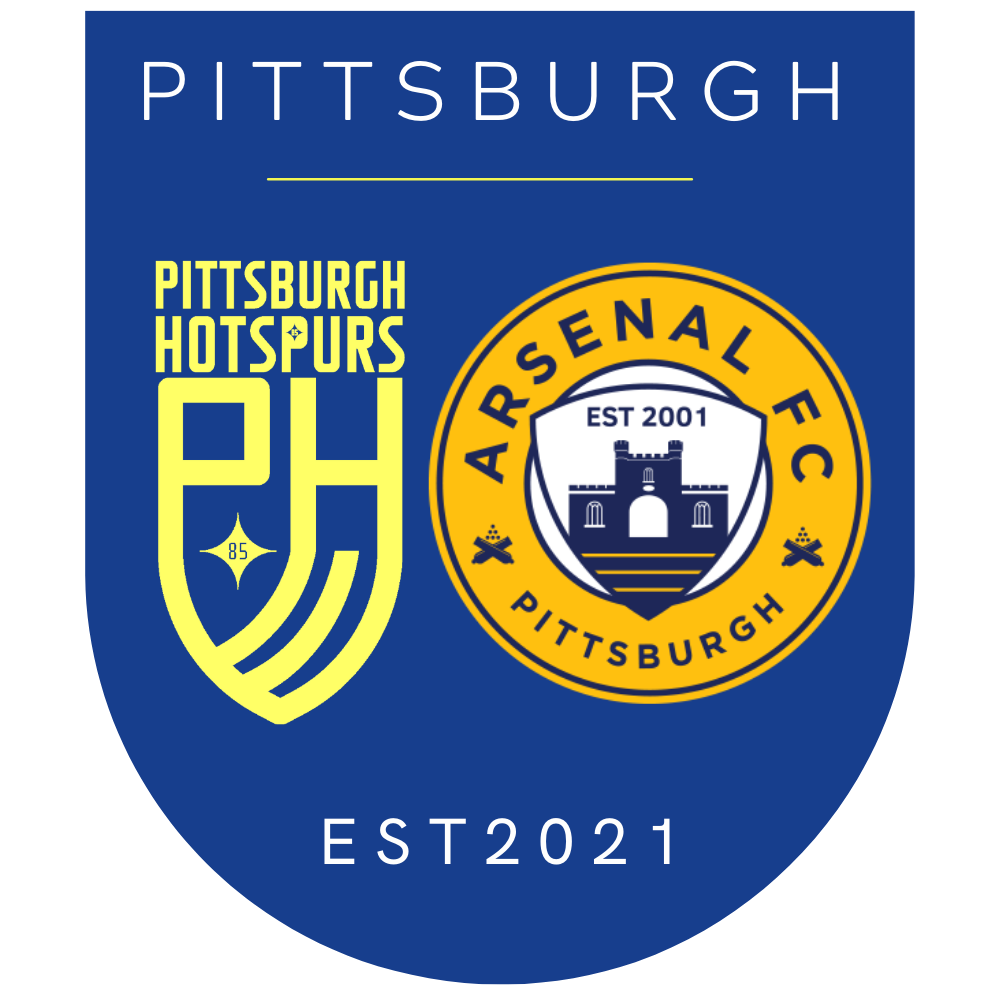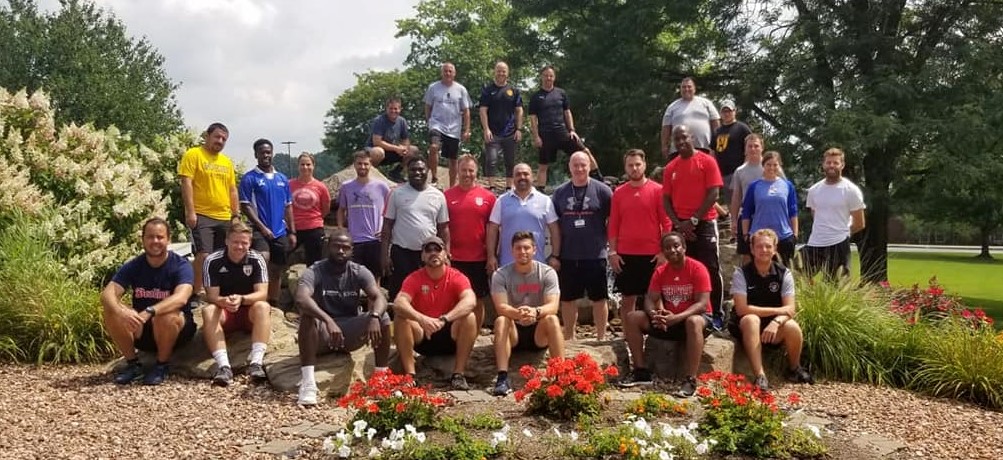Get Out of Your Comfort Zone: Scott Arnold, National C Coaching License
 Education is a top priority for our entire coaching team. It’s important to us that our players, families, and interested fans of the game know about the growth and direction of our club as we continue to develop our identity and style in Pittsburgh.
Education is a top priority for our entire coaching team. It’s important to us that our players, families, and interested fans of the game know about the growth and direction of our club as we continue to develop our identity and style in Pittsburgh.
As the “year of education” continues, Coach Scott Arnold recently obtained his US Soccer National C Coaching License! Here’s what Coach Scott had to say about his accomplishment:
Reason to pursue the National C Coaching License
I’ve been interested in getting the C License for years, but it’s a big commitment in time and money. Between being a soccer Dad and a soccer coach, it’s been challenging to set aside enough vacation time to attend! I’m thankful to PA West for running a local C License this year at Slippery Rock.
US Soccer recently redesigned the Coaching License Pathway, and I had heard good things about the changes. From the C Course guide, “The program is designed to focus on…an 11v11 environment with players 13 years of age and older and developing both the individual and the team.” Since I’m coaching 14U this year, it was perfect timing.
Requirements of Coaches Pursuing the License
There is a significant financial (up to $2000) and time commitment (>130 hours) for the C course.
It started with a 5-day course meeting at Slippery Rock University that included both field and classroom sessions — led by US Soccer instructors and the coaches for licensing.
After leaving Slippery Rock, we had a seven-week development period in our home environment with eight assignments to complete and submit. This led up to our second meeting over a weekend where we had to run a training session for our final assessment.
To be successful in the course, it is important for coaches to:
- Be vulnerable and open to honest feedback
- Keep an open mind and a growth mindset
- Commit to complete the assignments on schedule
The Overall Experience
USSF C Class from Slippery Rock (2018)
I didn’t anticipate the great camaraderie among the coaches. We really supported each other and became close throughout the experience. I hope to see many of them at the United Soccer Coaches Convention in January.
The instructors were wonderful. They were serious but supportive. My take was that the course provides the education and framework to adapt to your environment. In the past, USSF was criticized for forcing coaches to tell the instructors what they want to hear. This wasn’t my experience at the C.
There was standardization in the session organization and terminology, but it wasn’t overly restrictive. As an example, several of us ran defending sessions in the attacking 1/3, but I noticed differences in-game models among the coaches, and this wasn’t discouraged.
Main Course Takeaways that Can be Found in Future Training Sessions
Self-reflection is a point of emphasis throughout the course. To improve I’m trying to consistently self-reflect to understand what went well and what didn’t (whether after a practice, game, parent meeting, etc.), and how to do better next time.
USSF is promoting a particular training session model — Warmup-Orientation-Learning-Implementation. Since taking the course, I sometimes design sessions based on the USSF model.
Even if a session design isn’t strictly following the model, there are still useful aspects of the USSF model that I utilize such as “managing the opposition” early in the session (in the USSF model this is part of the Orientation Phase). For example, if we are trying to improve attacking into the final third by finding gaps in the defense, I will coach the defending players to try to stay compact and organized. “Managing the opposition” early has been useful to replicate and identify the problem we are trying to solve in practice.
Why Coaching Education is Important
No matter what field you are in, you can always improve. Coaching is no exception!
Formal coaching education like the USSF Coaching License Pathway is one component for coaches to continue their learning. It is important to get out of your comfort zone in order to grow.
However, it can be difficult to find the time and money to pursue higher USSF licenses. Fortunately, there are still many other sources for coaching education to complement the licenses:
- Find a mentor who is knowledgeable in an area you are trying to improve
- Observe other training sessions and games
- Seek out and watch the highest levels of youth soccer to benchmark
- Attend the United Soccer Coaches Convention
- Use social media to be exposed to new coaching ideas (connect with me on Twitter @DScott_Arnold)
- Develop your own age-appropriate game model

